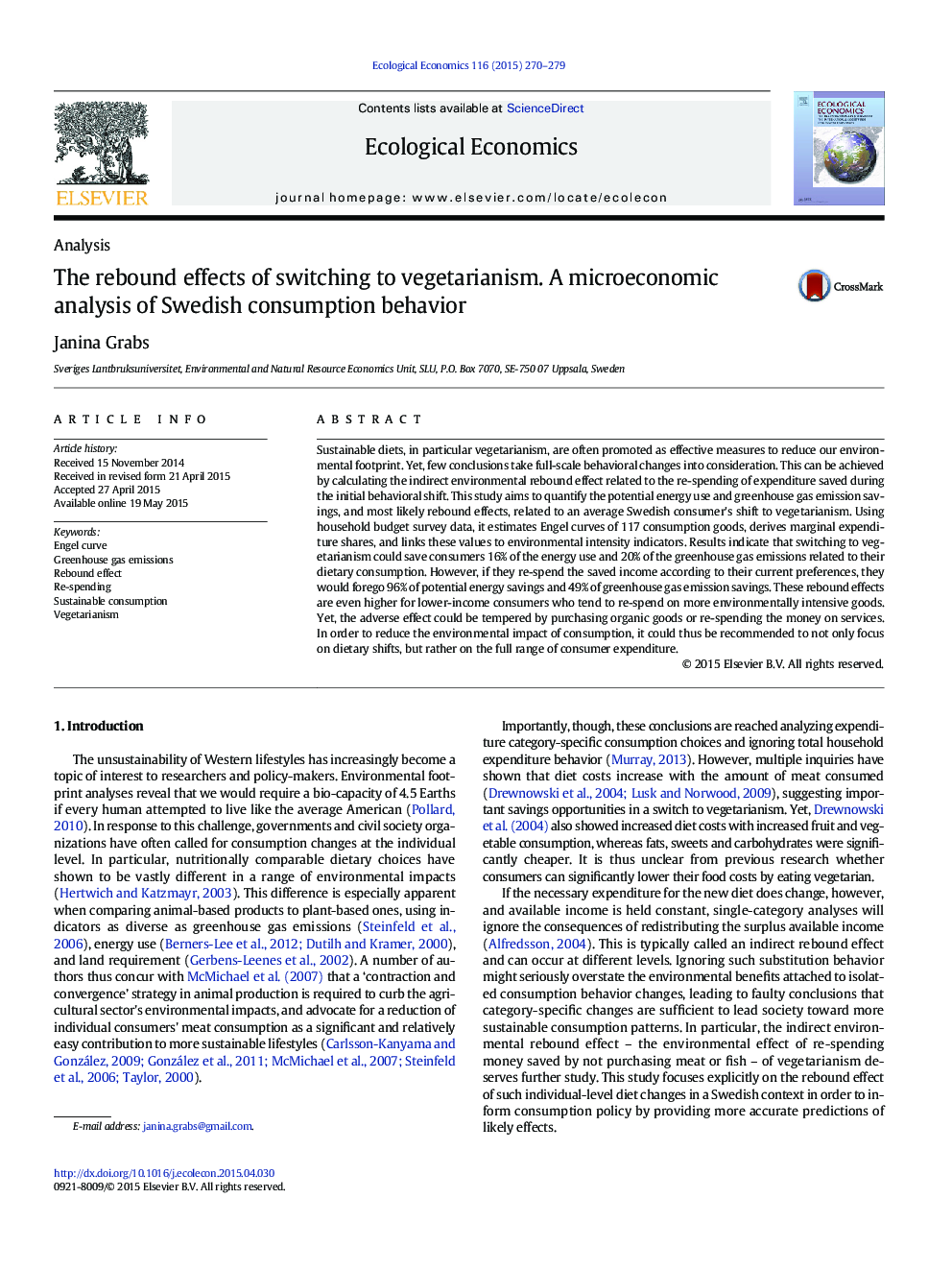| کد مقاله | کد نشریه | سال انتشار | مقاله انگلیسی | نسخه تمام متن |
|---|---|---|---|---|
| 5049445 | 1476363 | 2015 | 10 صفحه PDF | دانلود رایگان |
- A turn to vegetarianism could reduce personal energy (â 2%) and GHG (â 4%) footprints.
- Rebound effects from re-spending saved money counteract such potential benefits.
- We estimate energy rebound effects of 96% and GHG rebounds of 49%.
- Rebound effects differ between income levels, decreasing with increasing income.
- Purchasing organic or re-spending only on services minimizes rebound effects.
Sustainable diets, in particular vegetarianism, are often promoted as effective measures to reduce our environmental footprint. Yet, few conclusions take full-scale behavioral changes into consideration. This can be achieved by calculating the indirect environmental rebound effect related to the re-spending of expenditure saved during the initial behavioral shift. This study aims to quantify the potential energy use and greenhouse gas emission savings, and most likely rebound effects, related to an average Swedish consumer's shift to vegetarianism. Using household budget survey data, it estimates Engel curves of 117 consumption goods, derives marginal expenditure shares, and links these values to environmental intensity indicators. Results indicate that switching to vegetarianism could save consumers 16% of the energy use and 20% of the greenhouse gas emissions related to their dietary consumption. However, if they re-spend the saved income according to their current preferences, they would forego 96% of potential energy savings and 49% of greenhouse gas emission savings. These rebound effects are even higher for lower-income consumers who tend to re-spend on more environmentally intensive goods. Yet, the adverse effect could be tempered by purchasing organic goods or re-spending the money on services. In order to reduce the environmental impact of consumption, it could thus be recommended to not only focus on dietary shifts, but rather on the full range of consumer expenditure.
Journal: Ecological Economics - Volume 116, August 2015, Pages 270-279
